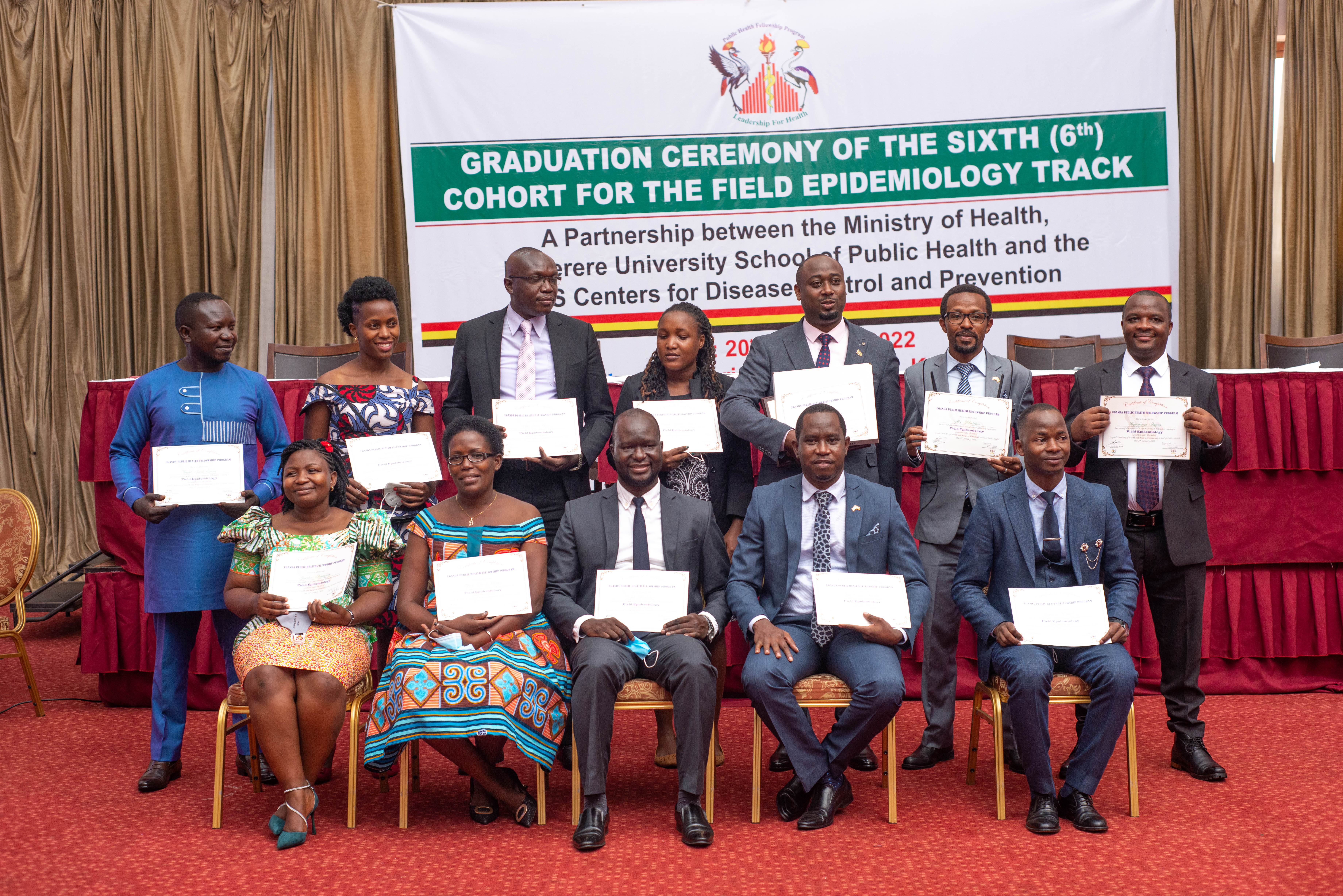
On January 20, 2022 at Imperial Royale Hotel in Kampala, a total of 13 new members of the Uganda Public Health Fellowship Program -UPHFP class of 2022 graduated at a colorful ceremony graced by their suitors, the ministry of Health, World Health Organization and the US Ambassador Natalie E. Brown.
The UPHFP is a tripartite Public Health Workforce Capacity building program of the Ministry of Health, Makerere University School of Public Health and the US Centers for Disease Control and Prevention.
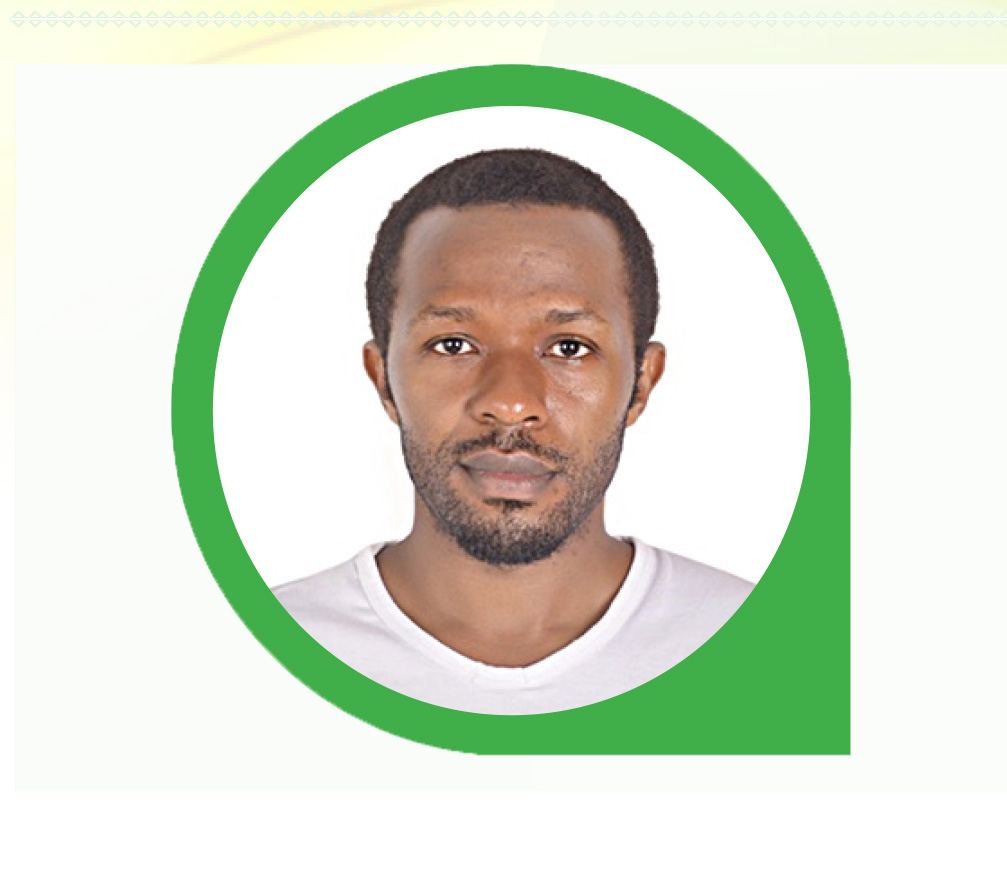
Dr. Alex Ndyabakira, Fellow Cohort 2020 is a medical doctor with a postgraduate diploma in project planning and management from Uganda Management Institute -UMI. He also holds a Masters of Public Health Degree from Makerere University.
Prior to joining the field epidemiology training program, he worked as a project coordinator at the Infectious Diseases Research Collaboration where he designed and coordinated implementation of several community trials. He has published about use of incentives to promote health behaviors, HIV care and malaria.
During the fellowship, Dr. Ndyabakira was hosted at the Kampala Capity City Authority where he led the city COVID-19 response, airquality management and monitored staff in scientific writing through initiation of KCCA public health bulletin.
“I have developed passion for urban health programming and in my new role as the supervisor medical services for the KCCA, I will continue implementing all the projects that are still on-going despite the fellowship training termination. I will continue taking lead on air quality management as well as NCDs in the city, ensuring publication of the quarterly bulletin as well as mentoring the KCCA staff in scientific writing. As a visiting lecturer for air quality planning and health at University of Wisconsin, USA, I will continue to foster collaborations with all partners in this sector.”
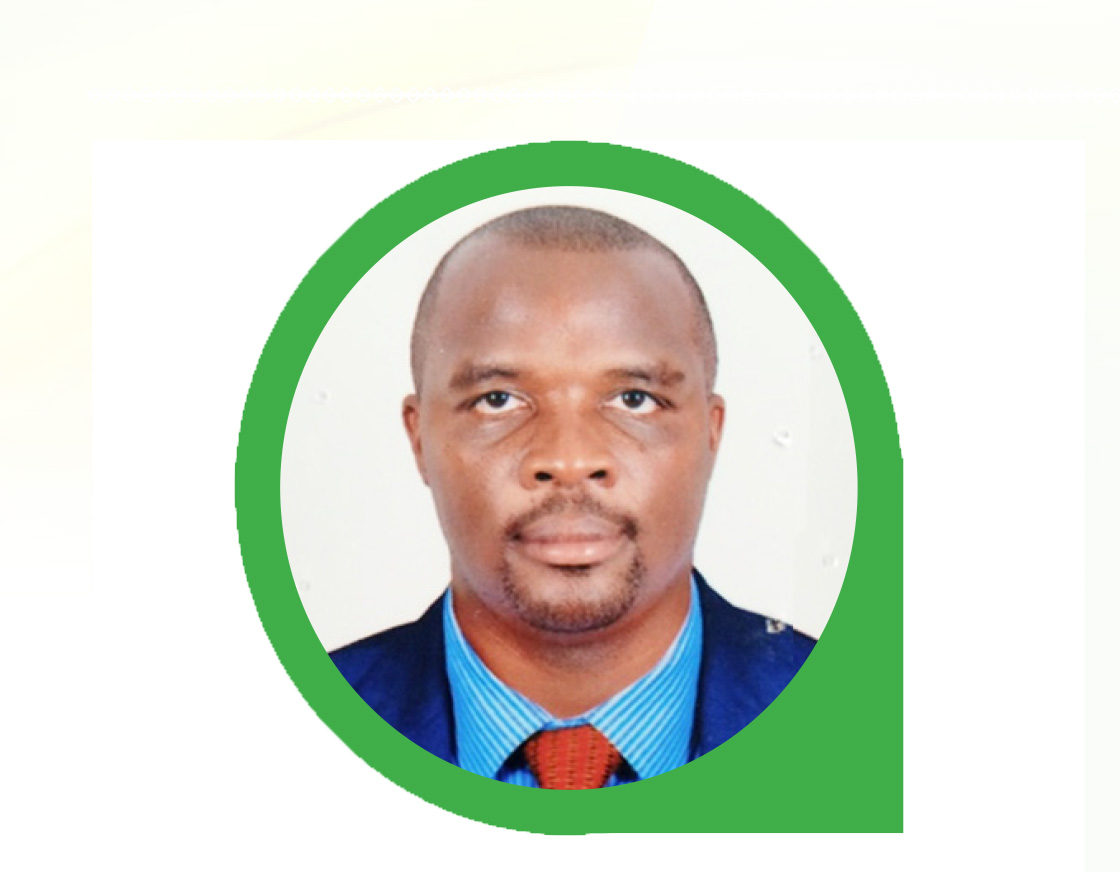
Aggrey Byaruhanga holds a Master of Public Health, a Bachelor of Environmental Health and a Diploma in Medical Laboratory Technology all from Makerere University. He joined the program in 2020.
“What captured my mind was the hands-on training in applied epidemiology and public health leadership. I have acquired skills and knowledge in project planning and management, epidemic preparedness and response, scientific writing skills, large data base management and analysis and implementing quality improvement projects in health service delivery.”
These, he says, have enabled him to significantly contribute to epidemic preparedness, control of communicable and nin-communicable diseases, participate in disease intelligence an take lead in outbreak investigations in Uganda.
“Without a doubt, I have attained a spirit of excellence and problem-solving skills in my practice as an epidemiologist,” says Byaruhanga.
During his time as a Fellow, he was attached to the STI/AIDS Control Program (ACP). While there, he lead various national level trainings and supervisions, supporting mainly the strategic information and the prevention arms of the program notably the HIV Recency Surveillance Project.
“I hope to use all the acquired skills and knowledge to impact my community through expert service where need arises. I also hope to mentor those after me in this program if given an opportunity to do so,” says Byaruhanga.

Immaculate Akusekera holds a Bachelors degree of veterinary medicine and a Master of Science in Clinical Epidemiology and Biostatistics from Makerere University.
“I gained skills in investigation of public health emergencies, non-scientific communication, scientific communication, or dissemination. I developed my leadership skills, skills in reporting of public health events and analysis of public health data”
In her two years as a Fellow, Akusekera trained and prepared policy briefs, interfaced and used analysis software like epi-info & STATA for analysis of the data that was generated during the implementation of various projects. This was in addition to disseminating her findings through the Ministry of Health Quarterly Epidemiological bulletin, technical reports, and manuscripts.
She has implemented several projects including a quality improvement project, one HIV project, COVID-19 projects and Anti-microbial resistance projects during which she developed a skill of coordination, organizing meetings, leading implementing teams successfully. She has developed a career in one health issues and AMR and she has implemented projects and writeups around this subject matter. Before she joined the program, Akusekera worked as the District Veterinary Officer in Kibaale District.
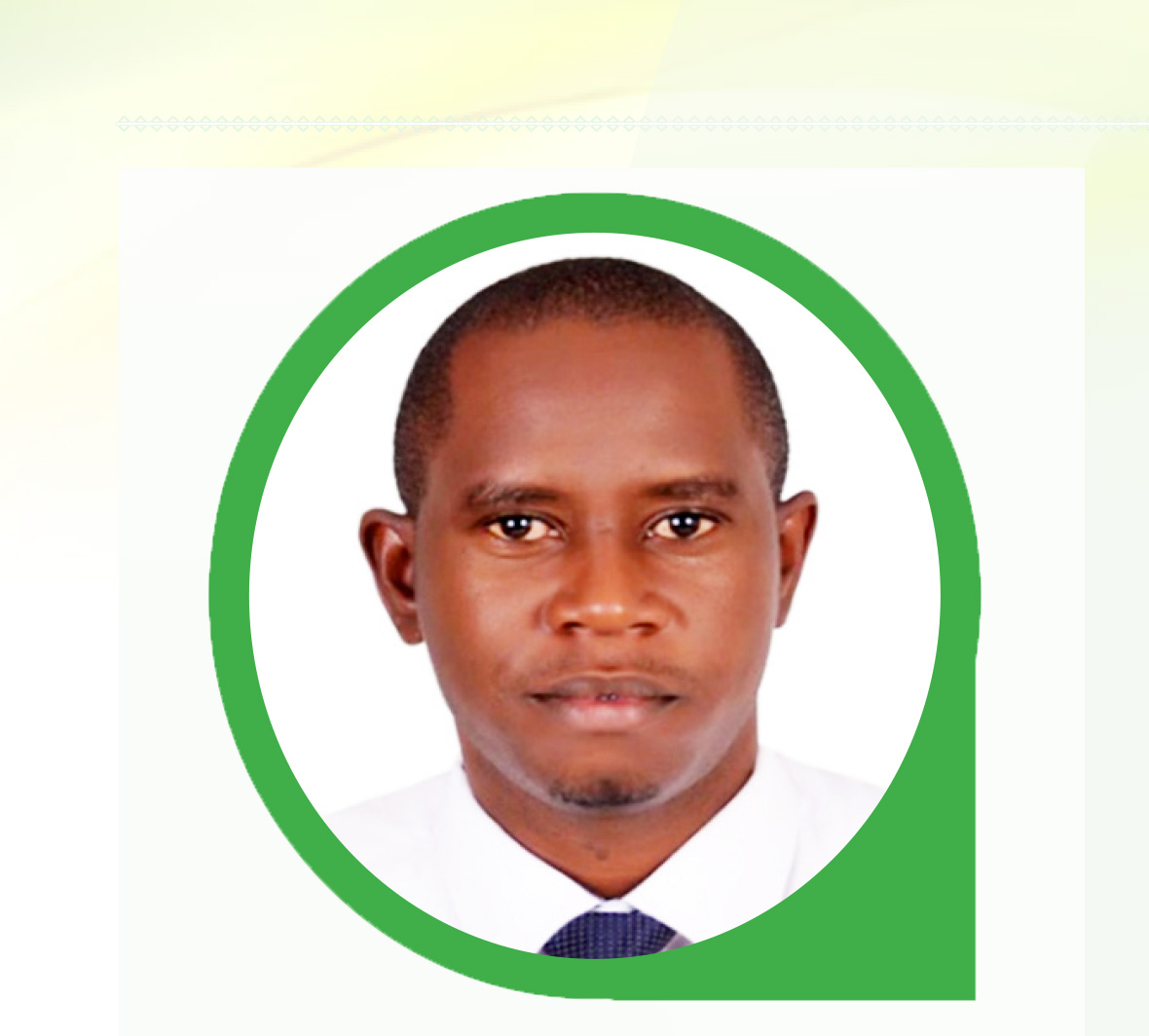
Bob Omoda Amodan holds a Master of Public Health Degree from Makerere University, School of Public Health. Before joining the fellowship program, he pursued another Masters in Sanitation from the Netherlands. He has worked with both government and nongovernmental establishments for over 10 years. Omoda has implemented and managed several public health interventions ranging from surveillance, improving institutional and household WASH services, immunization, Nutrition, HIV, neglected tropical diseases, and malaria in Busia, Teso, Karamoja and West Nile sub-regions in Uganda. The practical aspects critically linking the above-mentioned public health programs with epidemiology/ surveillance, and scientific communication were clear gaps exhibited during his career before he joined this fellowship program.
The fellowship has made Omoda gain advanced outbreak detection and investigation skills, multitasking abilities, policy briefs and funding proposal development, scientific writing, presentation and publication skills, rapid management/leadership and technical capacity building abilities, operational and strategic planning, clear and timely documentation, healthcare systems strengthening, coordination and advocacy skills.
Additionally, Omoda is proud of the strong research methods, large database management and analysis (Epi info, STATA, SPSS), and GIS mapping skills, among others.
Whereas Omoda has written and published a number of manuscripts, bulletin, and newspaper articles, he is also a scientific reviewer in PLoS ONE, BMC Public health and Journal of Public health in Africa. In addition, Bob is a very interesting presenter, who has made presentations in both national and international conferences, including NFEC, PEPFAR summit, E. African FETP conference, FETP international Nights, IANPHI webinar and ICEID. Notably, he got a best presenter award in the East African FETP conferences on COVID-19 in November 2020.c
Omoda’s supervisors and peers recognize that he is a hardworking, jolly, outgoing, respectful, and above-all, honest person. He speaks his mind easily, and has very strong team-work and negotiation skills. Following his accomplishments in the fellowship program, he has no doubt that he will excel as a Public health specialist and Epidemiologist for enhanced global health security.
He hopes to look out for critical and fast running epidemiology and disease surveillance jobs and contracts, continue accomplishing research articles drafted during the fellowship, and engage further in global health security interventions and research in addition to continued support to the FETP intermediate mentees as well as making sure that there is linkage between all public health programs and epidemiology/ global health security.
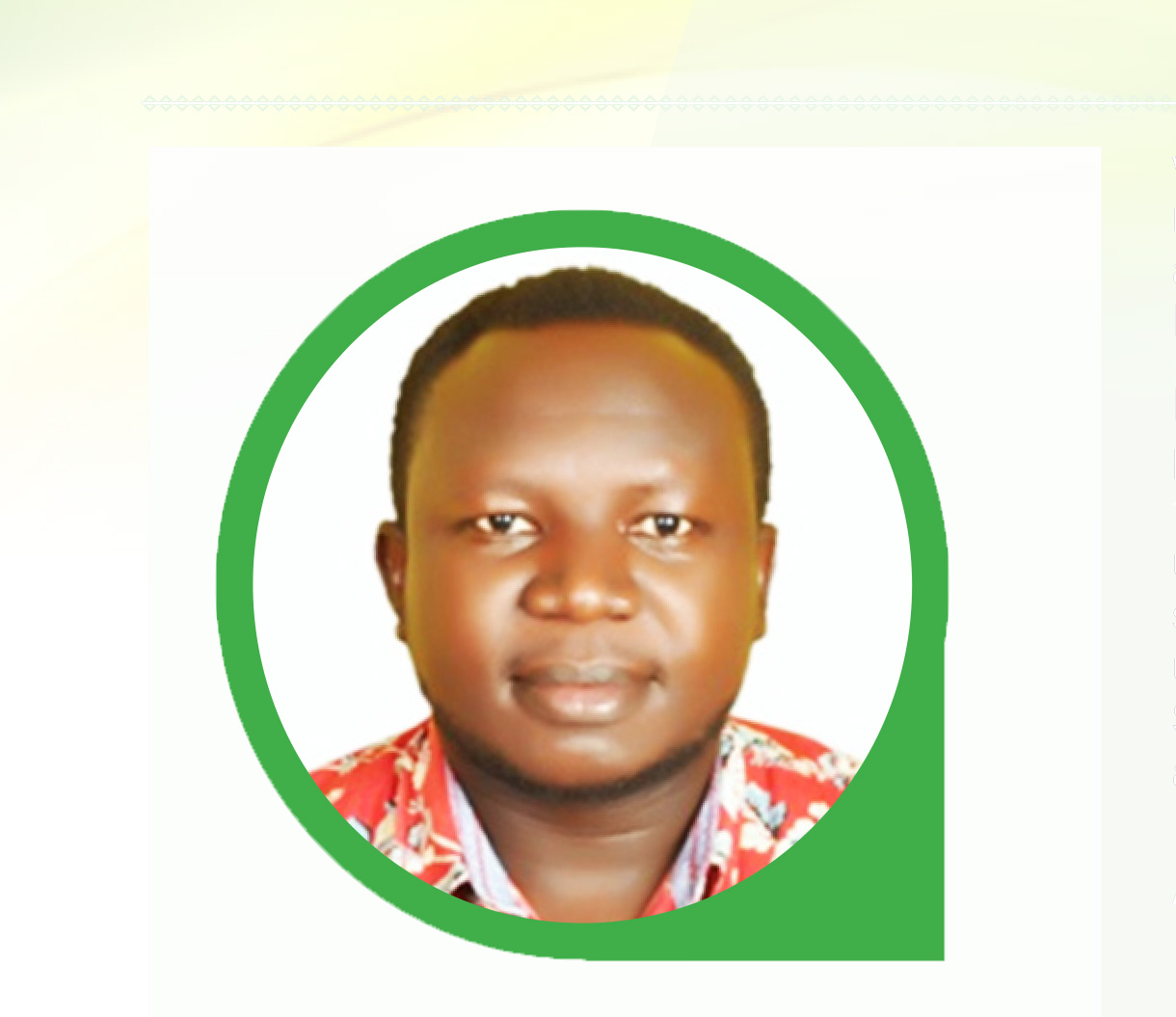
Daniel Jacob Emong is a cohort 2020 advanced field epidemiology fellow with a background in Biomedical Laboratory Technology. I hold a Master of International infectious Disease Management from Makerere University. I have over time gained interest in Tuberculosis (TB) and HIV/AIDS. During my time as a public health fellow, I was hosted at The National TB and Leprosy Program (NTLP), Ministry of Health for a two-year apprenticeship.
He has conceptualised, designed and implemented studies in Tuberculosis including TB treatment outcomes among adult TB/HIV co-infected patients in Kampala Metropolitan, Uganda 2018-2020. “At NTLP, I was able to carry out investigations to guide programme decisions. I have extensive knowledge in Tuberculosis and HIV/AIDS patient care, capacity building and health systems strengthening. Through this experience, I have built my confidence and extensive competence in designing study protocols and, implementing them, writing reports, abstracts, PowerPoint presentations, manuscript writing, data analysis, publication skills and investigating outbreaks including Rift Valley Fever and COVID-19 response,” says Emong.
He has also led two outbreak investigations and participated in four (4) others. “I have also been part of the COVID-19 response and control activities. I have undertaken several short courses and improved my skills in using data to develop policies, data analysis using statistical and spatial packages like STATA, SPSS, EPI Info and QGIS; Event-based surveillance and case-based surveillance.”
Emong hopes to leverage on his knowledge, experience and skills obtained before and during the public health fellowship period, to further his career in the field of epidemiology through service at national and international levels. “I plan on publishing all the work done during the fellowship period in peer review journals,” he adds.
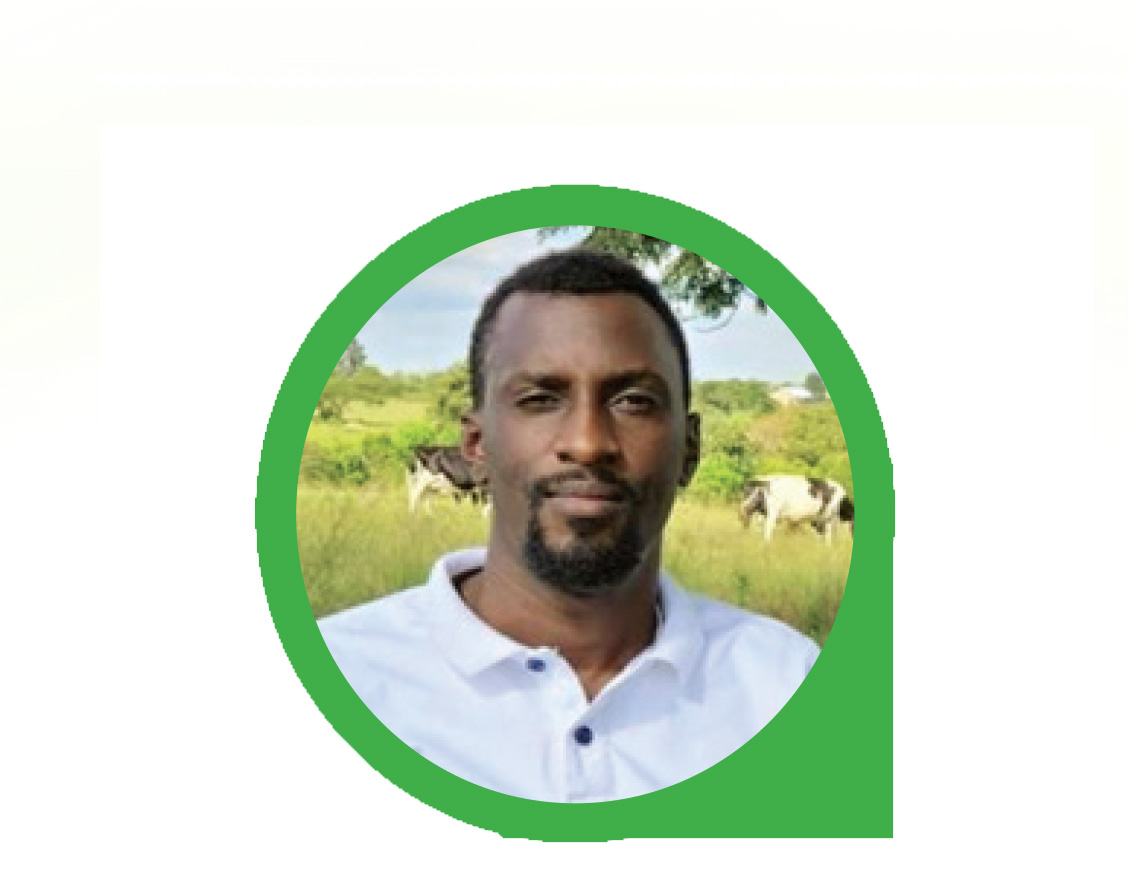
Geofrey Amanya holds a Master of Science in Clinical Epidemiology and Biostatistics from Makerere University. “I joined this program in 2020 and what captured my mind is the training through service in applied epidemiology and public health leadership. I have been equipped with knowledge and skills through a hands-on experience. The program has complemented my previous training by engaging me in large dataset analyses, scientific writing, national level meetings, scientific presentations, trainings to mention but a few, hence building my capacity.”
During his time as a Fellow, Amanya was attached to the Butabika Hospital where he led various trainings and supervisions, supporting mainly the strategic information and the prevention arms of the program and data systems reviews.
“I have attained a spirit of excellence and problem- solving skills in my practice as an epidemiologist.”
He is passionate about mentorships and hopes to mentor other fellows. “I hope to use all the knowledge and skills acquired to impact my community through expert service where need arises or an opportunity presents,” says Amanya.

Ignatius Wadunde holds a Master of Public Health and a Bachelor’s degree in Bio-Medical Laboratory Technology from Makerere University. Before joining the Fellowship, program Ignatius worked for the Infectious Diseases Research Collaboration as a Laboratory scientist, Makerere University School of Public Health as a Research supervisor and conducted various field assignments for Ministry of Health, Uganda ranging from immunisation activities to outbreak investigations and response. During His time as a Field epidemiology fellow at the Uganda Public Health Fellowship program, He has been attached at the Uganda Cancer Institute where He gained skills/ experience in community cancer screening and sensitization, leadership and public health response to including data analysis, interpretation and use. The fellowship program has enabled Ignatius to gain technical expertise in field epidemiology skills that include: outbreak detection, investigations and response, evaluation of public health surveillance systems, project development and implementation, leadership and management, capacity building, scientific writing and communication skills.
He hopes to publish pending work done during the fellowship in peer reviewed journals as well as use the knowledge, skills and experience gained to nurture a career in epidemiology and impact society nationally and internationally through available institutions of government and international organizations.
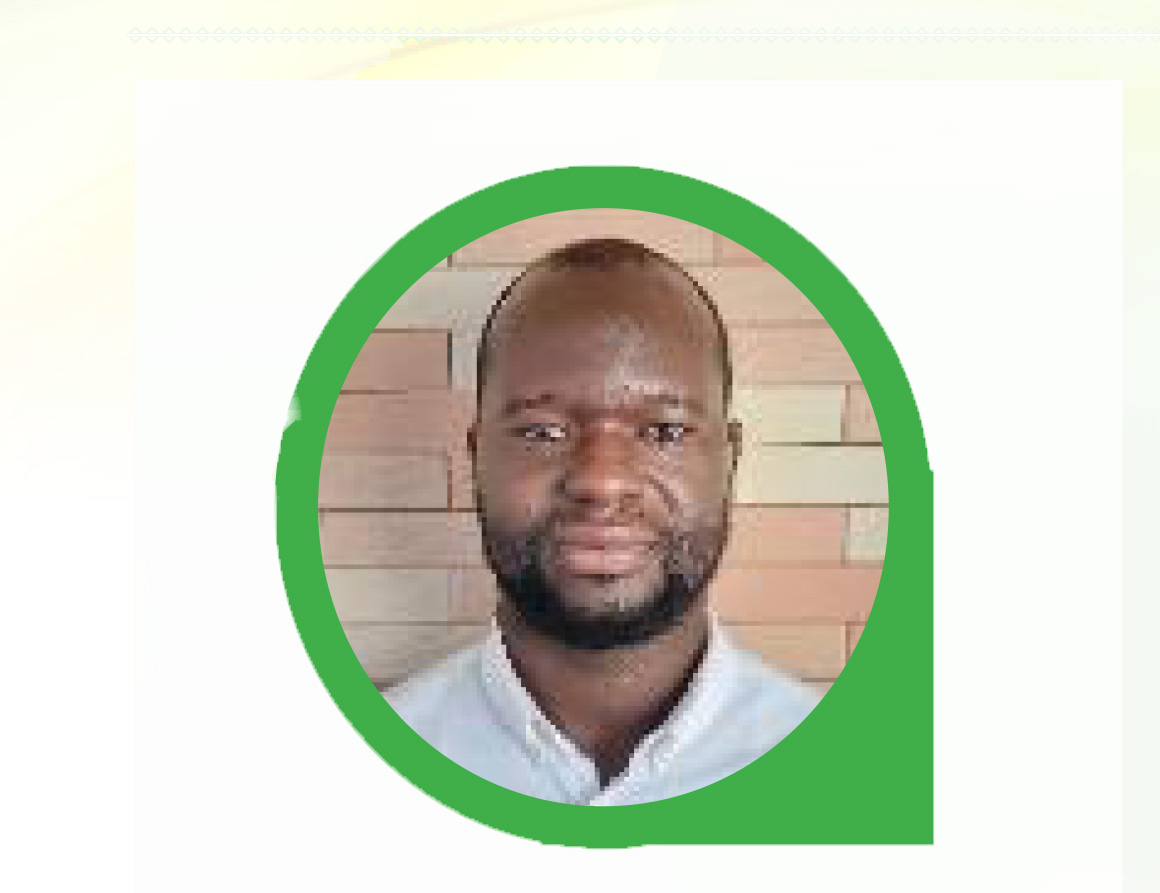
Job Morukileng holds a Master of Public Health Degree from Makerere University College of Health Sciences, School of Public Health. Before joining the fellowship programme, he worked with International Rescue Committee (IRC) and Baylor College of Medicine Children’s Foundation where he managed and implemented public health projects focusing on improving maternal and child health (MCH), HIV and malaria in Teso and conflict affected Karamoja region in Uganda. During his involvement in public health project management and implementation, he realized gaps in his capacity to investigate and provide evidence-based recommendations to the public health problems that significantly affected the communities he was serving (such as outbreaks, side effects of MCH project services like family planning and immunization). To address this gap, he joined the Public Health Fellowship Programme (PHFP).
During the two years of the fellowship, Job has appreciated the role of several statistical methods and research designs in field epidemiology and public health. He has gained skills in managing research projects, developing policy briefs, collecting data, managing and analyzing data (Epi info, STATA, SPSS), mapping (QGIS), scientific writing, and report writing. He has written manuscripts, published bulletin articles, led outbreak investigations and implemented a quality of care improvement project.
He hopes to identify an appropriate opportunity that will utilize the skills he has gained from the fellowship especially focusing on investigating health events and providing appropriate recommendations. “I will continue advancing my knowledge and skills in epidemiological studies and management of public health projects,” Morukileng.
This is in addition to continued sharing of findings of multiple studies conducted during the fellowship through publications, bulletins and presentations as well as participate in any public health response at any level when called upon.
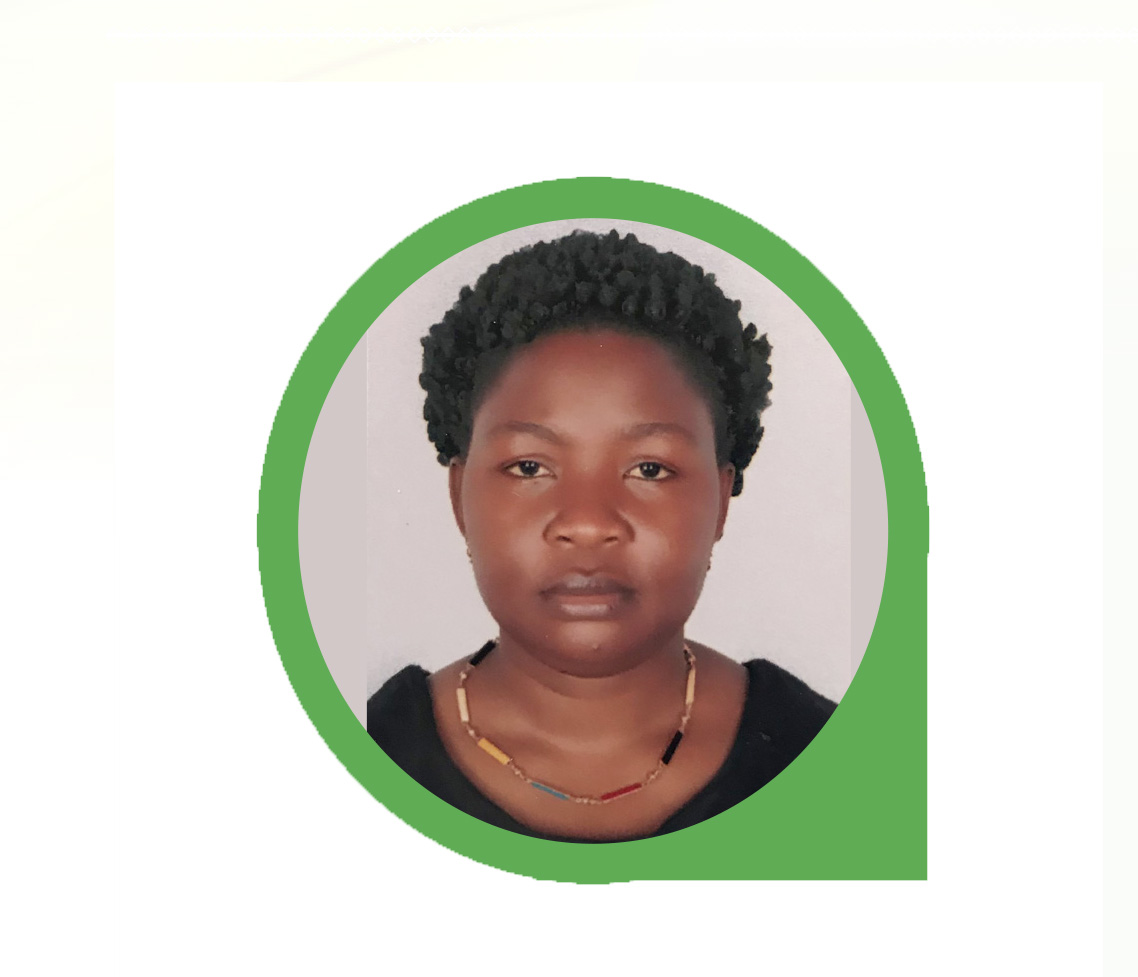
Josephine Namayanja holds a Bachelor of Veterinary Medicine and Master of Veterinary Preventive Medicine of Makerere University, Kampala.
“During my two years of the fellowship, I have gained skills in scientific writing, leadership, communication, reporting of public health events, and analysis of public health surveillance data using computer software including Excel, Epi-info, & STATA,” says Namayanja.
She gained competencies in the first steps of transforming data into policy by preparing policy briefs. I prepared several articles for the Uganda National Institute of Public Health (UNIPH) quarterly epidemiological bulletin, technical reports, newspaper articles, and manuscripts.
“I have gained experience in conducting trainings, conducting epidemiological investigations, and quality improvement projects. I have also gained skills in extracting, cleaning, and analyzing secondary data. Before joining the fellowship, I worked as a Veterinary Inspector at Entebbe International Airport for the Ministry of Agriculture Animal Industry and Fisheries in the Department of Animal Health. My role was to ensure that all live animals and animal products were free from diseases before they are allowed into or out of the country.
Given her interest in Epidemiology, Namayanja was given special assignment to manage data at the National Animal Diseases Diagnostics and Epidemiology Centre (NADDEC). It is from there that she was identified to participate in an International Training Programme (ITP) in animal health, food safety and antimicrobial resistance in the animal food value chain: “Healthy livestock – Safe food” which took place in Uppsala and Jönköping, Sweden in May to November, 2019.
The training was organized by the Swedish National Food Agency (SLV), the Swedish National Veterinary Institute (SVA), the Swedish Board of Agriculture (SJV) and the Swedish University of Agricultural Sciences (SLU) on behalf of the Swedish International Development Agency (Sida). Through this training; “I acquired knowledge on disease surveillance, crisis management of zoonotic diseases, control of foodborne zoonoses, and prevention of antimicrobial resistance in the animal food chain.”
She also completed a graduate fellowship in infectious Disease Management supported by USAID and Minnesota University – implemented by Makerere University School of Public Health and College of Veterinary Medicine, Animal Resources and Biosecurity. During the fellowship, Namayanja was attached to the Division of Veterinary Public Health, Ministry of Health where she participated in a number of activities. These included Yellow Fever outbreak investigations in Rukungiri, training of VHTs in Community-Based Disease Surveillance (CBDS) in Adjumani and Masaka Districts, and training of District Health Teams in Integrated Disease Surveillance and Response (IDSR) in Gomba District. She also led a team of Health educators to mobilize communities for Yellow Fever Mass Vaccination in Kalangala District.
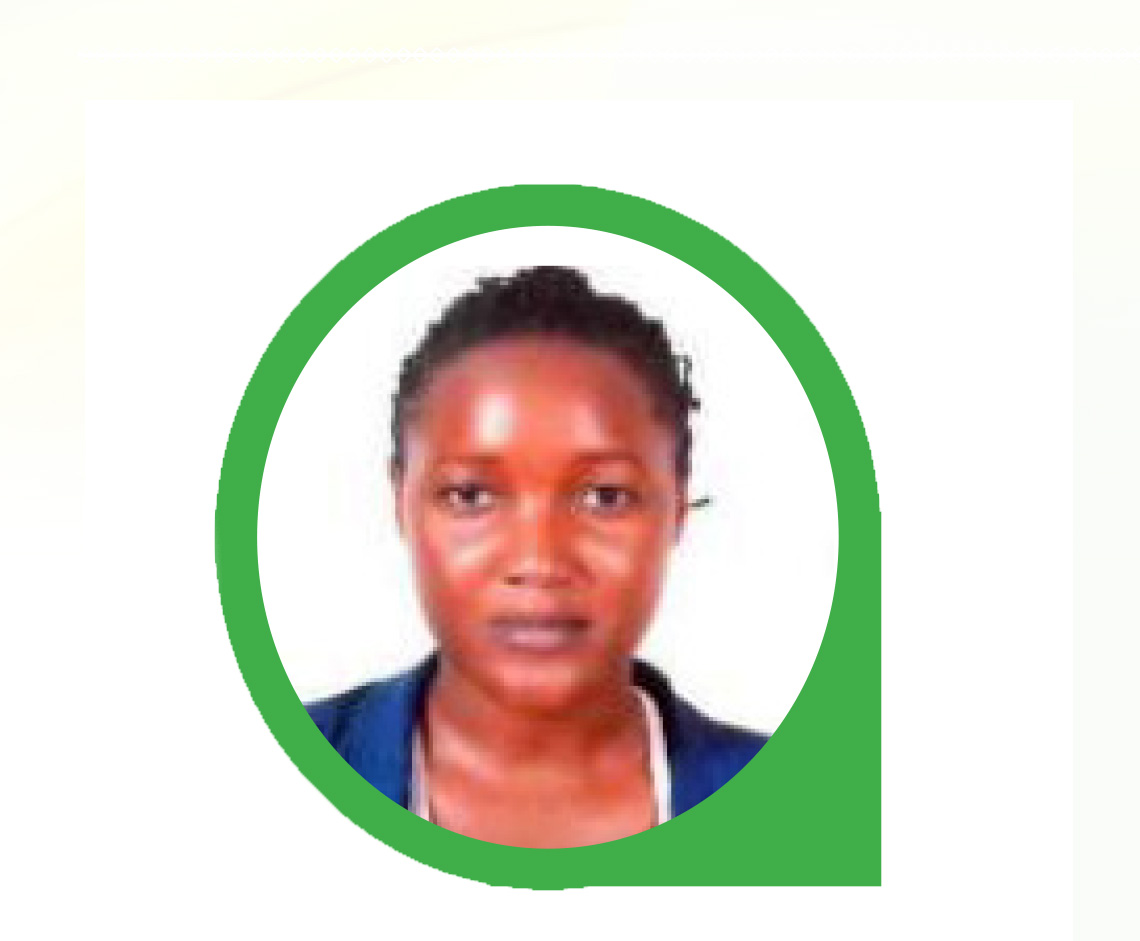
Elizabeth B. Katana holds a Master of Science in Clinical Epidemiology and Biostatistics from the Clinical Epidemiology Unit, School of Medicine, College of Health Sciences at Makerere University.
“During the two years of this fellowship, I have learned and built skills in field epidemiology and community engagement in both rural and urban settings. I have appreciated the role of several statistical methods and research design approaches in field epidemiology, public health, and clinical practice. Some of these approaches included mapping, sampling, project management, policy reviews and development, study designs, research methods, data collection techniques, data management, scientific writing, and reporting.”
She prepared articles for publication and dissemination in the Ministry of Health quarterly epidemiological bulletin, technical reports, and manuscripts and has gained experience in organizing meetings and trainings, conducting epidemiological investigations and quality improvement projects, and enriched her skills and expertise in abstraction, collection, cleaning, analyzing and triangulating survey data.
Before joining the fellowship, Ms. Katana participated in field epidemiological investigations and support supervision for antimicrobial resistance (AMR) surveillance at regional referral hospitals in Eastern Uganda with the Infectious Diseases Institute-Global Health Security Programme (IDI-GHSP). She also participated in Tuberculosis surveillance including community and hospital investigations for Drug-Resistant Tuberculosis in the Karamoja region and monitoring and evaluation of iCCM activities and reporting functions of Village Health Teams in Nakapiripirit district while working with Doctor’s with Africa (CUAMM).
Ms. Elizabeth Katana says she will continue training and learning with a focus on epidemiological analyses, statistical methodology, research methods, and clinical epidemiology. She also hopes to share and teach the acquired skills from this fellowship program to other public health professionals.
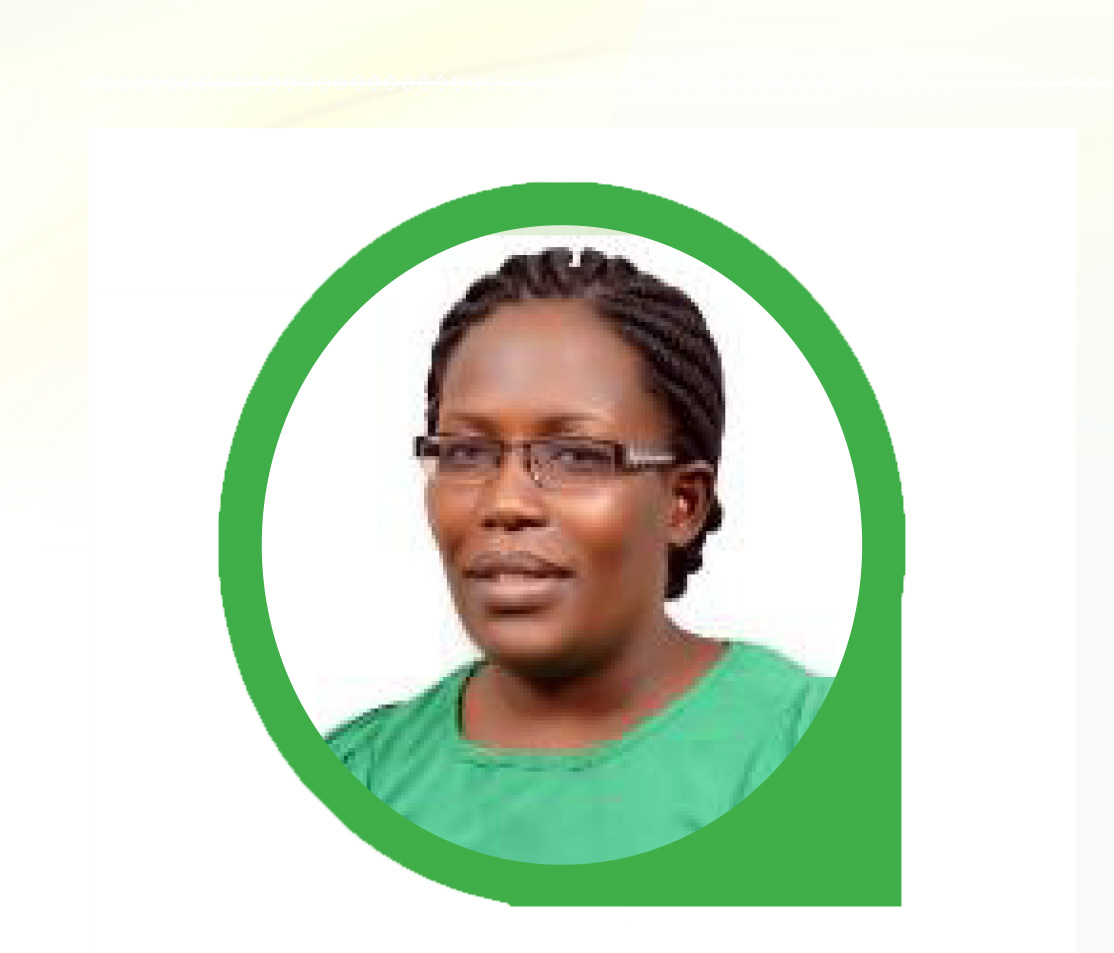
Patricia Thiwe holds a Bachelor of Environmental Health Science and Master of Public Health from Makerere University, School of Public Health. During her two years of the fellowship, she was hosted at the National Malaria Control Division (NMCD), Ministry of Health where she was part of the team that is charged with malaria prevention and control in Uganda. Patricia gained skills in Epidemiology including disease outbreak investigation, response to public health emergencies, design and implementation of operational research, data analysis, scientific writing, and communication among others Prior to joining the fellowship programme, Patricia worked as an Assistant District Health Officer- Environmental Health in Nebbi District where she oversaw environmental health services in the district.
“I am looking forward to further my career I field Epidemiology through service with the Ministry of Health and/or other organizations that will allow me leverage the knowledge, and skills obtained during this training,” Thiwe.

SP Peter Oumo is a field epidemiologist with a background in environmental health. I hold a Master of Public Health from International Health Sciences University (IHSU). During my tenure as a Public Health Fellow, I have been attached to the National Malaria Control Division (NMCD) of Ministry of Health where I have developed confidence in myself amidst challenges of the lockdown and learnt to work in a dynamic environment. No sooner had I reported to the host site that was the lockdown instituted. We have literally been known as the COVID-19 cohort.
With the skills Peter Oumo has acquired through the fellowship tenure, I hope to further my career in the field of epidemiology through service in an organisation that will provide me with the opportunity to serve and practice my epidemiology and other skills learnt along the fellowship.

Dr. Migisha Richard is an epidemiologist and holds a Bachelor’s degree in medicine and Surgery, a Master’s degree in Public Health, and a Master’s degree in Science in Physiology. Before joining the Uganda Public Health Fellowship Program (UPHFP), I worked as a medical officer in Kisoro District Local Government, and Ntungamo District Local Government, mainly as a clinician for seven years. I am an alumnus of One Health Institute (OHI) of Makerere University, and I have experience in working with infectious disease outbreaks, and non-communicable diseases. I have published more than 20 scientific papers in the field of disease outbreak investigations, zoonotic diseases, and non-communicable diseases including hypertension, diabetes, and cardiovascular diseases. As a member of the National Rapid Response Team, I have been involved in the national response to the COVID-19 pandemic, including leading three COVID-19 outbreak investigations in different parts of the country.
“I hope to share the skills and competences gained during the fellowship with the aim of improving public health practice in Uganda. I hope to further my career in field epidemiology,” Dr. Migisha.
The program is funded by the US Centers for Disease Control and Prevention (US CDC) through the Public Health Workforce Cooperative Agreement number NU2GGH001353-04.

